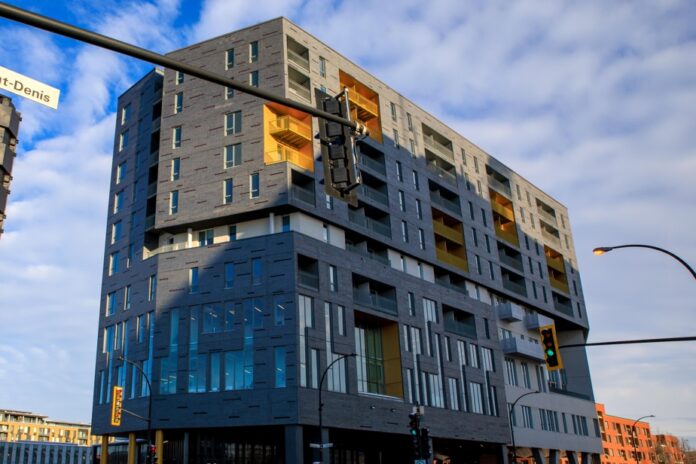(Quebec) The Legault government will guarantee a place for the private sector in its affordable housing construction program and is committed to building 1,500 new housing units within 5 years. It also puts 190 million on the table to unlock projects already announced and delayed due to higher construction costs.
“The government must give itself the means to ensure that all housing stakeholders, including the private sector, participate in solutions aimed at countering the lack of affordable housing on the rental market”, underlines Quebec in the budget.
The first version of the Quebec Affordable Housing Program (PHAC) was already open to the private sector, but of the 1,700 units “being built”, only 10% were of interest to business people. This result falls short of the expectations of the Minister of Housing, France-Élaine Duranceau.
What do you think of this budget from Minister Eric Girard?
His ministry will therefore change the formula to guarantee real estate developers one-third of the funding for the new wave of affordable housing construction, or 500 units out of 1,500. The objective, Duranceau told La Presse, is to “limit the risk” of the Government of Quebec. She said that private promoters who participate in the program will have to bear the cost overruns, which is not the case for non-profit organizations.
If the private sector largely shunned the first version of the PHAC, it was because it was “not ready” and the construction market was running at full speed. Rising interest rates and slowing housing starts will be a game-changer, Duranceau said.
The Legault government recently announced that the PHAC would replace the AccèsLogis program, which was intended more for the creation of social housing. However, Quebec wants to carry out the projects already in the boxes and which are stalling. In an interview with La Presse, Minister Duranceau had pointed the finger at the partners for these delays.
The budget acknowledges, however, that additional budgets are required to carry out these projects “due to recent increases in interest rates and labor shortages” and that the lack of funding has the “consequence of slowing down the realization of approximately 3,300 AccèsLogis units, including 1,297 in Montreal”.
Quebec is therefore disbursing 191 million in 2022-2023 to “finalize the construction” of AccèsLogis housing units since the “rapid construction of these units is necessary in the current context of low vacancy rates on private rental markets, which complicate the search for housing affordable”. They should be built within a “two-year horizon,” Duranceau said.
Minister Duranceau points out that, on average, the subsidy per housing unit has increased from $75,500 in 2018 to $181,500 in 2022, which demonstrates the need to “tighten the screws”.
The housing shortage is hitting hard in all regions, whether in southern or northern Quebec. A pilot project put forward by the Legault government symbolizes its impact. He wants to build “modular” housing units to accommodate health network personnel who wish to settle in remote areas. The math: It’s hard to recruit an employee in a city if you can’t find a house there.
Quebec is therefore following the example of certain private companies that have already begun to build houses to attract workers to the regions, since “the rental markets of several municipalities concerned currently offer few places available to house these workers and allow them to settle there for the longer term”.
Faced with the housing crisis, the Coalition avenir Québec (CAQ) had promised the erection of 11,700 new affordable housing units in the current mandate, but not everything has yet been funded. “This is the first budget in a series of four budgets over a four-year term,” retorted Finance Minister Eric Girard, who called for patience.
He estimates that the total of the envelope announced in his budget, 1 billion over 5 years, is already very “significant”.
However, Mr. Girard includes in this envelope an annual increase in the solidarity tax credit — $39 for a single person, $63 for a couple with two children — as well as the allocation of 2,000 additional places in the rent supplement.















